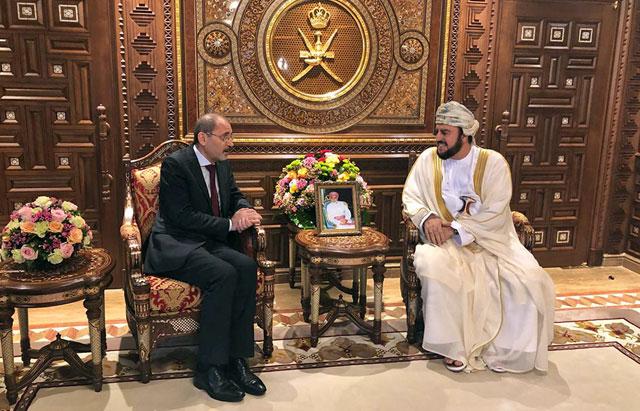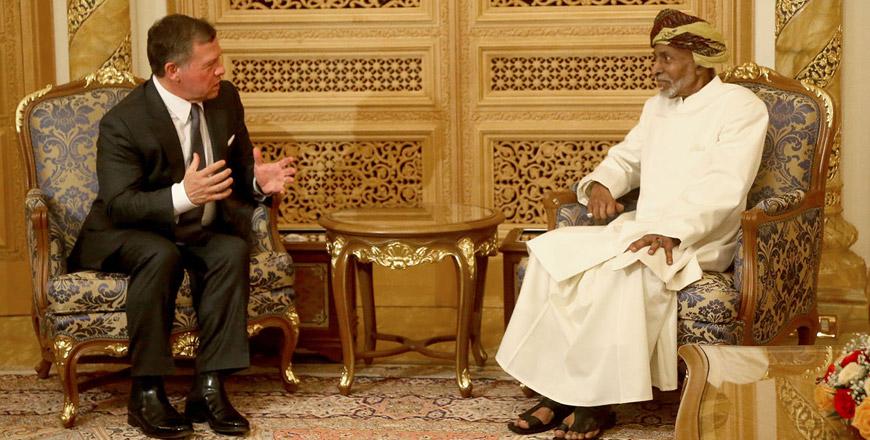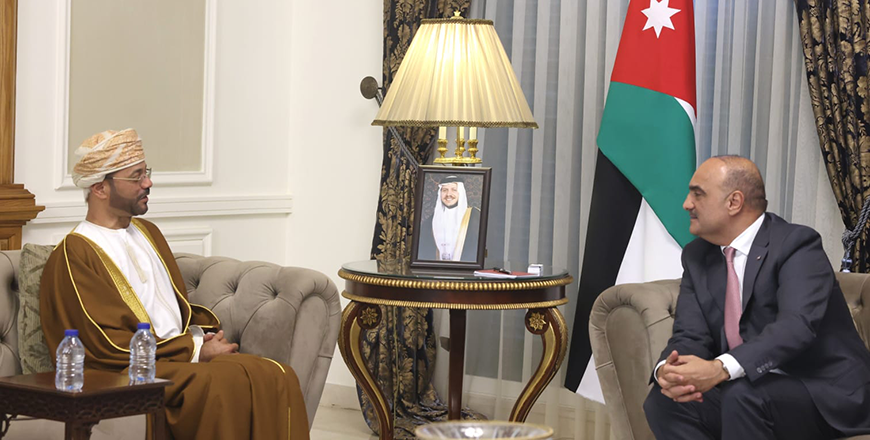You are here
In Oman, Safadi stresses stance on Palestine, economic cooperation
By JT - Jun 27,2019 - Last updated at Jun 27,2019

Foreign Minister Ayman Safadi meets with Sayyid Asaad Bin Tariq Al Said, Omani deputy prime minister for international cooperation and Sultan Qaboos' special representative, on Wednesday (Photo courtesy of Foreign Ministry)
AMMAN — Sayyid Asaad Bin Tariq Al Said, Omani deputy prime minister for international cooperation and Sultan Qaboos' special representative, on Wednesday received in Muscat Foreign Minister Ayman Safadi, who delivered a message from His Majesty King Abdullah, in which he expressed the Kingdom’s pride in its deep-rooted relations with Oman and keenness to develop them at all levels.
The Omani official in turn conveyed Sultan Qaboos' greetings to the King, according to a Foreign Ministry statement.
Safadi discussed during the visit with his Omani counterpart Yousuf Bin Alawi practical steps to be adopted by the two countries to boost economic cooperation in the fields of tourism and medical tourism, commending the ongoing progress the two countries are witnessing.
During the meeting, the two ministers agreed upon forming, as soon as possible, a Jordanian-Omani trade committee to be headed by the two top officials “for the first time”, after it has been held at the level of secretary general of the two countries’ industry ministries.
Talks also shed light on following up on the implementation of the agreements and memoranda of understanding through the tasked committee, as well as boosting communication between the private sector and related authorities to reach institutional frameworks.
The two ministers also touched on the regional developments, topped by the Palestinian cause, stressing that the sole path to comprehensive peace is through resolving the Palestinian-Israeli conflict on the basis of a two-state solution that guarantees the establishment of an independent Palestinian state on the June, 4, 1967 lines with East Jerusalem as its capital, in accordance with international legitimacy resolutions and the Arab Peace Initiative.
Both sides also reaffirmed the importance of preventing escalation in the Arab Gulf region and defusing the crisis through dialogue, underlining that the region cannot afford further escalation or new crises.
Discussions also covered the necessity of launching “true” efforts to overcome the regional challenges and reaching political solutions for crises.
Related Articles
AMMAN — His Majesty King Abdullah on Sunday started an official visit to Oman, where he held talks with Sultan Qaboos in Muscat, according t
AMMAN — Prime Minister Bisher Khasawneh received Omani Foreign Minister Sayyid Badr Albusaidi and an accompanying delegation on Thursday in
Oman’s Ambassador to Jordan Khamis Al Farisi on Saturday described Jordanian-Omani relations as a model of pan-Arab cooperation.

















